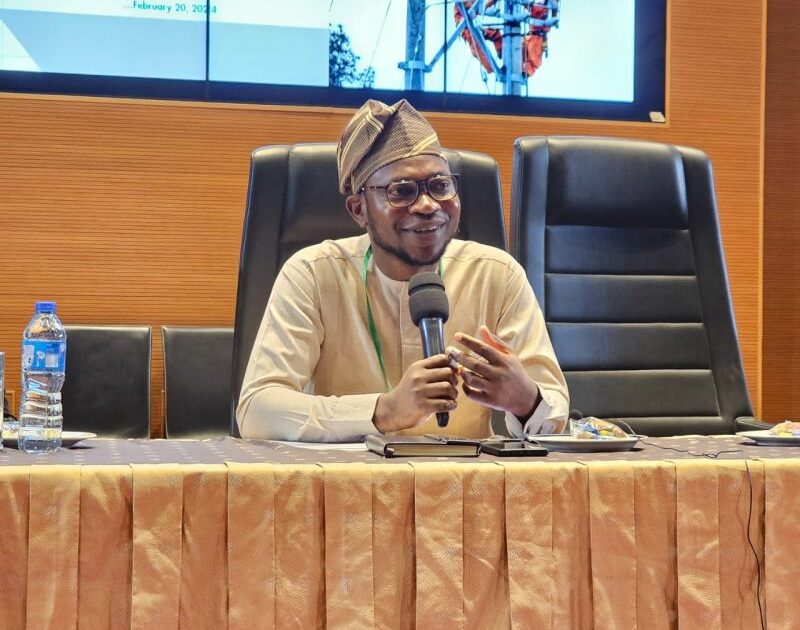The Nigerian Electricity Regulatory Commission (NERC) has called for improved relations between electricity distribution companies (Discos) and state regulators, emphasizing the importance of mutual respect and collaboration in the power sector. This appeal comes amid ongoing disputes over tariff control, a contentious issue that has consistently pitted Discos against state regulatory commissions. The NERC Vice Chairman, Musiliu Oseni, stressed the need for open communication, transparency, and accountability from Discos in their interactions with state regulators. He urged Discos to acknowledge the authority and role of state regulators in shaping the electricity market, advocating for a cooperative approach to address challenges and build a sustainable power sector. While emphasizing the responsibility of Discos to engage respectfully with state regulators, Oseni also encouraged state commissions to focus on developing their respective electricity markets and reducing reliance on federal subsidies.
The tension between Discos and state regulators stems from differing interpretations of the Electricity Act, 2023 (Amended). State governments, through their energy commissioners and the Forum of Commissioners for Power and Energy in Nigeria, maintain that the amended Act grants them the authority to regulate their power markets, including setting tariffs. However, the Association of Nigerian Electricity Distributors (ANED), representing the Discos, contends that while states can regulate their markets, they lack the jurisdiction to determine pricing for cross-border electricity. This disagreement has created a stalemate, with neither side willing to concede on the issue of tariff control. The standoff has escalated as state regulators, beginning with Enugu State, have initiated efforts to establish tariffs for their respective markets, a move vehemently opposed by the Discos.
In an effort to resolve the ongoing impasse and address the broader challenges facing the Nigerian Electricity Supply Industry (NESI), NERC convened a two-day stakeholders meeting. This meeting brought together state regulators, Discos, and other key players in the power sector to discuss the transition to a more efficient and sustainable electricity market. A key focus of the discussions was the integration of generation plants into the Supervisory Control and Data Acquisition (SCADA) system and the planned synchronization with the West African Power Pool (WAPP). NERC directed the Nigerian Independent System Operator (NISO) to conduct a synchronization trial run to identify and address any potential issues before full integration with WAPP.
The meeting also addressed the contentious issue of electricity tariffs, a major concern for consumers. The discussions aimed to find common ground between state regulators and Discos on tariff setting, seeking a solution that balances the need for cost-reflective tariffs with affordability for consumers. The overall objective was to create a regulatory framework that encourages investment in the power sector while protecting the interests of electricity users. NERC reiterated its commitment to supporting stakeholders and fostering collaboration to ensure the long-term success of the NESI as it transitions to a more robust and sustainable future.
The stakeholders meeting also featured a presentation by Mr. Taiwo Oyedele, Chairman of the Presidential Committee on Fiscal Policy and Tax Reforms. Oyedele outlined the implications of the new tax reform laws for the electricity industry, emphasizing the government’s commitment to fostering a thriving power sector. He highlighted the tax breaks, compliance requirements, and revenue management aspects of the reforms, explaining how these changes would impact various players in the NESI. Oyedele stressed the potential of the reforms to create a more transparent and efficient fiscal environment within the electricity industry.
NERC’s call for improved relations between Discos and state regulators underscores the critical need for cooperation and understanding in the Nigerian power sector. The ongoing dispute over tariff control highlights the complexities of transitioning to a more decentralized and competitive electricity market. Resolving this impasse requires a collaborative approach that respects the roles and responsibilities of both state regulators and Discos. The stakeholders meeting served as a platform for dialogue and engagement, aiming to address the challenges facing the NESI and pave the way for a more sustainable and efficient power sector. The integration with the West African Power Pool and the implementation of new tax reforms represent significant developments in the Nigerian electricity landscape, requiring careful planning and collaboration among all stakeholders to ensure a successful transition. The ultimate goal is to create a power sector that delivers reliable and affordable electricity to Nigerian consumers while attracting investment and promoting economic growth.


